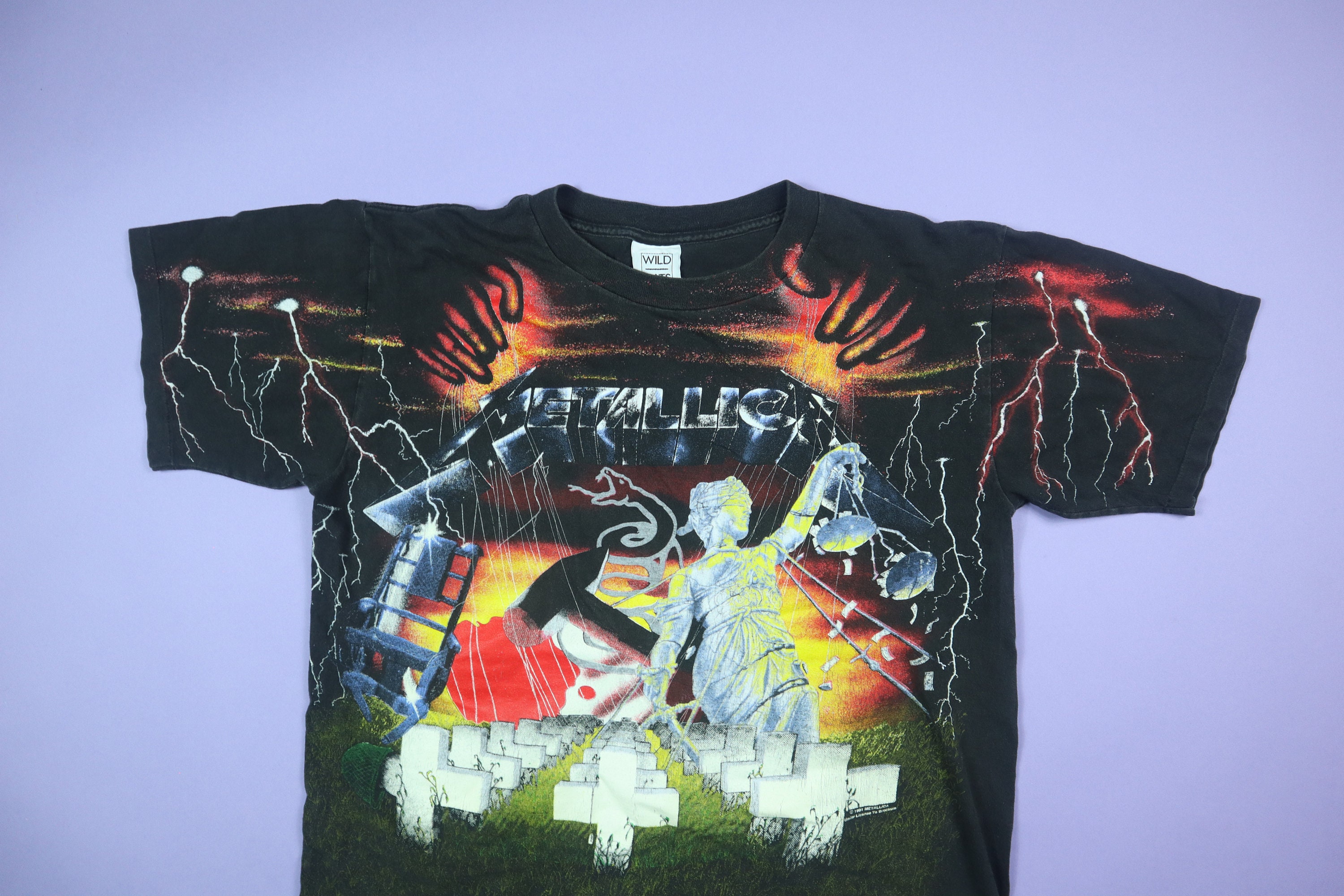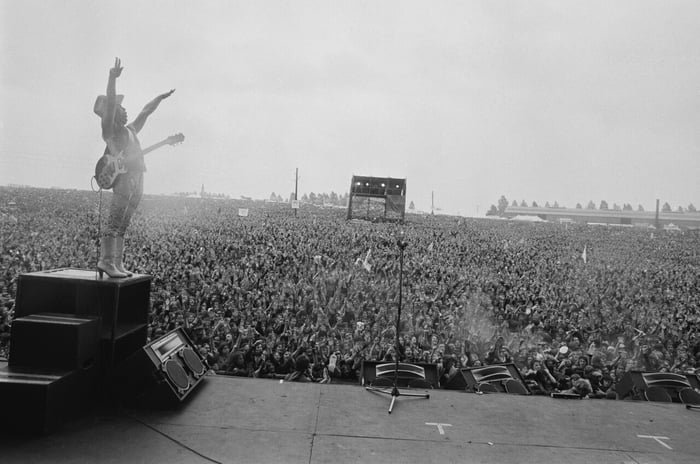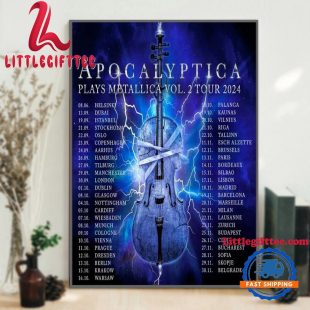Music
Metallica Moscow 1991 A Memorable Experience
In 1991, Metallica delivered an unforgettable concert in Moscow, an event that drew around 1.6 million fans—a record-breaking number for a live music performance. This was not merely a concert; it marked a profound historical moment amidst the cultural and political shifts of that era. The significance of this performance transcended musical boundaries, intertwining with the aspirations of freedom and renewal as the Soviet Union faced its collapse. As Metallica took to the stage, they became symbols of the transformative power of music, connecting communities and breaking down barriers. This article delves into the depths of this iconic event to explore its historical context, the explosive energy of the performance, and its lasting legacy in the realm of rock music.
Historical Context: A Nation on the Brink of Change

As we reflect on Metallica Moscow 1991, it’s essential to understand the immense backdrop against which this monumental concert unfolded. The fall of the Soviet Union loomed large over Moscow, and the air was thick with anticipation and hope for a new beginning.
The Political Landscape of 1991

The year 1991 was pivotal for Russia. The Soviet Union was unraveling, and the people were yearning for change. The political landscape was dominated by a longing for democracy and individual freedoms, which had been long suppressed under communist rule. Amidst protests and uprisings, the collective desire for liberty echoed throughout the nation, creating a fertile ground for artistic expression.
Music as a Catalyst for Change
Music has always played a vital role in social movements, and for many Russians, Metallica’s arrival symbolized that very change. The heavy metal genre, often associated with rebellion and defiance, resonated deeply with the youth who sought something more than a life dictated by rigid ideology.
Metallica, known for their powerful riffs and thought-provoking lyrics, provided an outlet for frustration and hope. The band did not just bring their music; they brought a message of empowerment—one that emphasized unity, strength, and resilience.
The Cultural Shift in Post-Soviet Society
The cultural shift during this time was remarkable. As the Iron Curtain began to lift, Western influences flowed into the former Soviet Union like never before. For the first time, young Russians could access the music, fashion, and ideas that had previously been forbidden or suppressed.
A Generation Awakens
This awakening was palpable during the Metallica concert. Young people dressed in denim jackets adorned with band patches gathered together, united by a common love of music that transcended any ideological divisions. In that moment, they stood not only as fans but as agents of change, ready to embrace a future filled with possibilities.
The audience’s collective passion created an atmosphere where sound transformed into something beyond mere entertainment—it became a form of liberation.
The Performance: An Explosion of Energy

When examining Metallica Moscow 1991, one cannot overlook the intensity and energy that permeated the concert. The sheer scale of the event, held at a military airport, added to the electrifying experience.
Setting the Stage
The choice of venue was symbolic. Metallica performing at a military site served as a stark reminder of the past yet signified a leap toward a freer tomorrow. The expansive space allowed for a vast gathering of fans, each eager to be part of this historical occasion.
An Ocean of Fans
As the crowd surged forward, it created an ocean of humanity, a sight to behold. The atmosphere buzzed with anticipation, and when the first chords struck, it felt as though the entire world had converged into that singular moment.
The soundwaves rolled through the audience, pulsating with rhythm and energy. It was as if every heartbeat synchronized, marking a collective celebration of freedom and joy.
The Power of Music
Metallica Moscow 1991 was more than just a concert—it was a cathartic experience. The band’s music, characterized by raw power and emotion, stirred a sense of camaraderie among those present.
Shared Emotions and Connection
As the audience sang along to classics like “Enter Sandman” and “Master of Puppets,” the walls between individuals dissolved. Strangers became friends, sharing in the exhilaration of the moment. There was no room for division; everyone stood together, united by the music that spoke to their souls.
That night, Metallica transcended their role as musicians; they became the voice of a generation, echoing the sentiments of countless individuals who longed for change.
The Lasting Legacy: A Symbol of Hope and Unity

Reflecting on Metallica Moscow 1991, it’s impossible to ignore the profound impact it had on music, culture, and society. This event left an indelible mark, shaping the future of rock music and artists’ approach to their craft.
Breaking Boundaries
One of the most significant legacies of this concert was its ability to break down barriers within the music industry. Metallica’s performance in Moscow challenged the notion of where and for whom music should be performed.
A New Approach to Concerts
Artists began to realize that they could reach audiences in unexpected places. Metallica’s daring choice to perform in a military airport opened doors for other genres and artists to explore unconventional venues, bringing music to the masses in ways previously considered unimaginable.
This shift in perspective encouraged artists to engage meaningfully with their audiences, fostering connections that went beyond commercial interests.
Inspiring Future Generations
The impact of Metallica Moscow 1991 extended well beyond that single concert. The essence of what transpired that night inspired countless musicians who followed. Young artists saw that music could be a force for good, capable of uniting and inspiring.
Creating a Movement
This concert spurred a movement—a wave of rock artists who mirrored Metallica’s ethos of social consciousness and communal experience. Festivals emerged, celebrating not just the music but the shared experiences of fans from all walks of life.
The legacy of that fateful night lives on, reminding us of music’s incredible potential to act as a bridge in times of crisis and uncertainty.
Reflections on the Power of Music

Looking back at Metallica Moscow 1991, it is clear that the concert was not merely a fleeting moment in time, but a reflection of the human spirit’s resilience and desire for connection.
The Role of Music in Society
Music holds a mirror to society; it captures emotions, struggles, and dreams. The power of a song can evoke memories and feelings that words alone cannot convey. During Metallica’s performance, this truth became evident as the crowd erupted into a collective fervor.
A Universal Language
Regardless of background or nationality, music speaks a universal language. It can heal wounds, inspire change, and spark revolutions. The Russian youth embraced Metallica’s music as their anthem, showcasing how art can encapsulate a generation’s hopes and desires.
In moments of difficulty, music can serve as a lifeline, reminding us that we are not alone in our struggles.
Envisioning the Future of Music
As we continue to navigate an ever-changing world, the questions raised by Metallica Moscow 1991 remain relevant. Will music continue to be a unifying force? How will future generations harness the power of art to address pressing societal issues?
The Promise of Tomorrow
The concert in Moscow serves as a beacon of hope, lighting the way for future artists and audiences alike. It reminds us that music can transcend borders and bring people together, reinforcing the idea that we are all part of a larger narrative.
As we move forward, may we carry the spirit of that historic evening with us, ensuring that music remains a powerful tool for connection, understanding, and change.
In conclusion, Metallica Moscow 1991 stands as a monumental event that reshaped the landscape of music and culture. It symbolizes the transformative power of art, capturing the spirit of a generation yearning for freedom and connection. The concert served not just as an entertainment spectacle, but as a profound statement about the potential of music to bridge divides and inspire change.
As we reflect on this extraordinary moment in history, we are reminded of the enduring legacy of Metallica, whose music continues to resonate across generations. Their performance in Moscow not only altered the trajectory of rock music but also ignited a flame of hope that remains alive today. Let us celebrate this legacy and recognize the vital role that music plays in shaping our world.




















